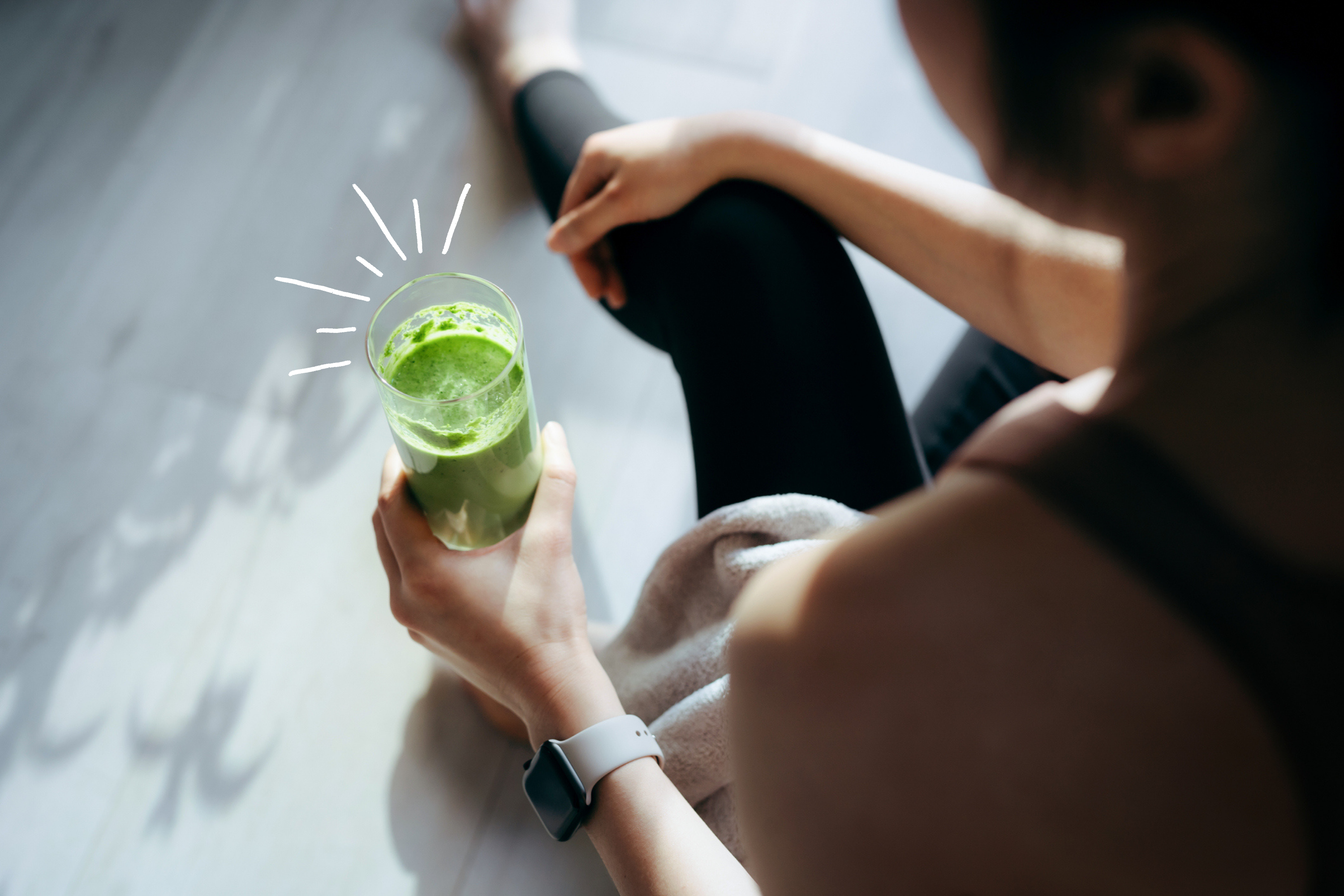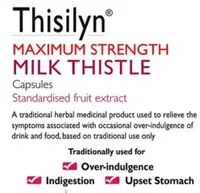What is a liver detox? And how to cleanse your liver in just six steps


Parenting advice, hot topics, best buys and family finance tips delivered straight to your inbox.
You are now subscribed
Your newsletter sign-up was successful
If you've woken up after a night out feeling a bit worse for wear and uttered the classic "I'm never drinking again", you might also be thinking about going through a liver detox to try and feel better.
Whether it's green juices, superfoods or an intense juice cleanse, it's common to think that certain foods or supplements will help you get through the process of flushing out toxins from your body via the liver. As clinical nutritionist Suzie Sawyer says, the liver is the body's natural detoxification system after all, and often feels the brunt of a heavy night of drinking or other overindulgence.
But is a liver detox actually a real thing? And what should you do to try and improve the health of your liver over time?
What is a liver detox?
A liver detox, cleanse or flush is a programme that claims to take out toxins from your body, help with weight loss or generally improve your health. As Suzie explains though, you're attempting to detoxify the body's very own detoxification system. "The liver is one of the largest organs is essential to the proper functioning of the body. It's the body's natural detoxifier as it purifies the blood of accumulated toxins, produces the digestive substances and stores the vitamins and minerals to be redistributed through the body," she says.
Many people believe that following steps, such as eating particular foods, will help their liver recover after drinking too much alcohol or eating unhealthy foods, for instance. While others think that a cleanse will help restore their liver and help it to work better, even going so far as to say that flushing out toxins could help treat liver diseases. But if toxins did build up in your liver to the extent that your liver couldn't process them, you'd be seriously unwell - and in need of more than a 7-day detox plan.
It's certainly the case that going through a so-called 'detox' will help the body in various ways, with research from Sichuan University showing that eating foods including those high in powerful antioxidants like vitamins C and E can help reduce the risk of certain liver diseases like cirrhosis and nonalcoholic fatty liver disease. However, there's no evidence to suggest that a liver detox will actually be the one hangover cure that works or help to treat any present liver diseases.
So if you can't flush toxins out of your liver, as it does that job itself, what's the point of a liver detox?
How does a liver detox work?
A liver detox works by prescribing certain foods with high amounts of vitamins, nutritionist Suzie says, that will help your liver go through the process of turning toxins into less harmful substances over time. "Not only can these foods make you feel better, but they may also may also help the liver better perform its functions and, help to regenerate its cells more easily."
Some products claim to offer a body detox via everything from dietary supplements to shampoos. However in 2009, a group of scientists gathered by the charity Sense about Science contacted manufacturers of 15 different products sold in supermarkets and pharmacies that claimed to detoxify the body. When they asked for the evidence behind the claims, none of the manufacturers were able to define what they meant by 'detox'. And they couldn't name the toxins that they were claiming to get rid off with their products.
So, Suzie says, stick to a selection of foods which have actually been proven to work:
- Avocados, tomatoes and spinach: Avocado is rich in glutathione - a substance which is present throughout the body. Its function is to protect cells against oxidation, and to help detoxify our body from heavy metals. Like tomatoes and spinach for example, it stimulates the production of liver and digestive enzymes as well as liver activity.
- Beetroot and carrots: Both are also rich in glutathione. Eating these two foods rich in flavonoids and beta-carotene helps the liver to regenerate and perform its purification role.
- Asparagus: Thanks to their diuretic function, they help the cleansing process by activating the functions of the liver and kidneys that eliminate the toxins.
- Green leafy vegetables: Green vegetables are extremely rich in chlorophyll. This assimilative pigment is capable of absorbing toxins from the environment and purifying blood from heavy metals.
- Cruciferous vegetables (e.g broccoli, cabbage, sprouts, radishes): Eating broccoli and cauliflower increases the production of glucosinolate enzymes in the body, helping to eliminate harmful toxins.
- Apples: Apples, rich in pectin, facilitate the process of cleansing the liver. Organic apple juice is also recommended for liver detoxification.
- Citrus fruits: Citrus fruits are another source of glutathione rich in vitamin C and antioxidants. They stimulate the production of liver and bile detoxification enzymes and improve the process of cleansing the liver. The family includes grapefruit and lemon. Eating citrus is recommended to help with digestion, decomposition of fat and activate the diuretic function.
And a new study by Alive! suggests that the need for including these fruits and vegetables is more than ever before. They found that staggering 89% of UK adults actually struggle to meet the requirements of five portions of fruit and vegetables a day. And while 21% of Brits eat vegetables every day, 5% never eat them at all. Fruit intake across the country is also low, with only 19% of people eating fruit every day. 11% never eat it at all.
"A well-balanced diet containing at least five portions of varied fruits and vegetables every day will help to detoxify your liver and maintain good health," Suzie says.
How to detox your liver
But along with more fruits and vegetables, there's more you can do to help improve the health of your liver:
1. Maintain a healthy weight
"If you’re overweight, you’re in danger of having a fatty liver that can lead to non-alcoholic fatty liver disease (NAFLD), one of the fastest growing forms of liver disease. Weight loss can play an important part in helping to reduce liver fat," says Suzie.
2. Eat a balanced diet
While a balanced diet does involve plenty of fruits and vegetables, a balanced diet also means knowing the difference between good fats and bad fats. "Avoid high calorie-meals containing saturated fat. And try to limit your intake of refined carbohydrates (such as white bread, white rice and regular pasta) and sugars. For a liver-friendly diet, up your fibre intake. You can obtain this from fresh fruits, vegetables, whole grain breads, rice and cereals. Also ensure the fats you consume are “good” fats that are monounsaturated and polyunsaturated. These include vegetable oils, nuts, seeds, and fish," Suzie says.
Plus, up your water intake. And if you're struggling to get in all your vitamins and minerals, consider taking a supplement to bridge any nutritional gaps. "Water is essential for life. And keeping our body hydrated is necessary for many of our important bodily functions to take place, including the liver. The NHS Eatwell Guide says we should drink 6 to 8 cups or glasses of fluid a day."
3. Take a milk thistle supplement
While it won't flush out your liver, milk thistle has been proven to help the liver's processes. "In foods, milk thistle leaves and flowers are eaten as a vegetable for salads and a substitute for spinach, although it is more commonly taken as a supplement," Suzie explains. "Milk thistle helps to strengthen the liver by preventing the depletion of glutathione. This is an amino acid like compound which is essential to the detox process."
More than 65 clinical trials have been performed assessing the benefits of milk thistle in over 5,000 participants. The main claim made for milk thistle is that it protects the liver. And the data from these trials supports this observation, Suzie says.
4. Drink responsibly
One of the biggest burdens on the liver is alcohol, research from the University of California explains. Apart from the potential for a nasty hangover in the short-term, serious alcohol abuse destroys liver cells. In turn, this causes scarring on the liver. Along with alcoholic hepatitis and cellular mutation in the liver that could lead to cancer.
"The NHS recommends a healthy adult should drink no more than 14 units of alcohol a week. This should be across three days or more. That's around six medium (175ml) glasses of wine, or six pints of 4% beer," Suzie says.
5. Exercise regularly
"When you exercise regularly, it helps to burn triglycerides for fuel and can also reduce liver fat. It can be as simple as taking a walk around the block or spending some time gardening. Any activity that gets your joints and muscles moving can help. Exercise engages all of your senses, and it has a big effect on your mood and self-esteem."
If you're looking to start exercising, you can try walking for weight loss before building up to start running from scratch.
6. Avoid toxins
Naturally if you're looking to detoxify your liver, you should avoid adding anymore potential toxins into your system. "Toxins can injure liver cells. Limit direct contact with toxins from cleaning and aerosol products, insecticides, chemicals, and additives. When you do use aerosols, make sure the room is well ventilated, or even wear a mask," Suzie says.

Suzie Sawyer is a nutritional expert with more than 20+ years of experience. Specialising in female health and food supplements, she is a member of the British Association for Applied Nutrition and has a diploma in nutrition from the Institute for Optimum Nutrition, London. Suzie has been featured in a range of title, including Women’s Health, woman&home, Women, Women’s Own, and Daily Mail.
Parenting advice, hot topics, best buys and family finance tips delivered straight to your inbox.

Grace Walsh is a health and wellbeing writer, working across the subjects of family, relationships, and LGBT topics, as well as sleep and mental health. A digital journalist with over six years experience as a writer and editor for UK publications, Grace is currently Health Editor for womanandhome.com and has also worked with Cosmopolitan, Red, The i Paper, GoodtoKnow, and more. After graduating from the University of Warwick, she started her career writing about the complexities of sex and relationships, before combining personal hobbies with professional and writing about fitness.
